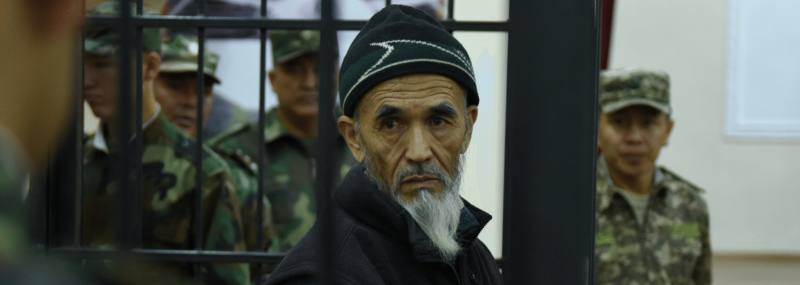Countries
Solidarity campaigns
Joint letter to the EU about the situation of detained human rights defender Azimjon Askarov in Kyrgyzstan

Dear Madam and Sirs,
We, the undersigned international human rights organizations, write to you to express our utmost and urgent concern about the ongoing wrongful imprisonment of Azimjon Askarov and the deterioration of his health, and to urge you to advocate with the Kyrgyz government for his immediate release, and his transfer to a safe third country for medical treatment.
As you know, Azimjon Askarov, 68, is a human rights defender and journalist who, in September 2010, was unfairly convicted and sentenced to life in prison for his alleged role in the June 2010 interethnic violence in southern Kyrgyzstan. He was found guilty of participating in mass disturbances, inciting ethnic hatred, and complicity in the murder of a police officer who was killed during the unrest. The investigation and trial into the alleged crimes were marred by due process and fair trial violations, and were conducted in a hostile atmosphere where relatives of the deceased police officer intimidated and attacked the defendants, their lawyers, and family members. Askarov’s credible allegations that he was tortured in pre-trial detention have never been properly investigated. His guilty verdict was upheld on appeal, including by the Supreme Court.
The United Nations Human Rights Committee ruled in March 2016 that Azimjon Askarov was arbitrarily detained, held in inhumane conditions, tortured and otherwise ill-treated without redress, and was not given a fair trial. The ruling noted that Kyrgyzstan “violated the author’s rights under article 14 (3) (e) of the Covenant.” The Committee called on Kyrgyzstan to take appropriate steps to immediately release Askarov and quash his conviction. Although the decision prompted a judicial review of his case, the Bishkek court in January 2017 handed down the same verdict as before. Askarov remains incarcerated, serving a life sentence.
The European Union (EU) has called on Kyrgyzstan to “fully implement” the Committee’s ruling in an April 2016 statement. More recently, in January 2019, the European Parliament adopted a resolution on the EU-Kyrgyzstan comprehensive agreement which notes “dissatisfaction, in this context, with the upholding of the life sentence handed down to human rights activist Azimjon Askarov, who documented the interethnic violence in 2010, and request his immediate release, quash his conviction, rehabilitate him and provide him with reparation.”
On 18 March 2019, Askarov was transferred from temporary detention facility SIZO-1 in Bishkek to Prison Colony No. 19, located about an hour outside Bishkek, in the Chuy region.
One of his lawyers, Mr. Valeryan Vakhitov, visited Askarov on 10 April, and noted that it appeared that “Azimjon Askarov’s health has significantly deteriorated. Askarov has lost weight, he is coughing all the time. He has a dry cough, and at times, he is unable to catch his breath. Azimjon complained that his legs are very cold, and nothing helps – not socks, shoes, or heating. He has stopped drinking fluids to lessen the number of times he must use the toilet.” Vakhitov also relayed that if Askarov is required to stand for long periods of time – such as during a cell check by prison officials, which happens daily – Askarov feels light-headed and dizzy. It is hard for him to breathe, Vakhitov noted.
We, the undersigned human rights organizations, are highly concerned about the ongoing denial of justice for our imprisoned colleague, the deterioration of his health, and about the quality of medical care available to him in Prison Colony No. 19.
Askarov has already served nine years in prison on a conviction handed down in a fundamentally flawed and unfair trial. Justice has never been served in his case. His continued detention is a stain on Kyrgyzstan’s human rights record that should be addressed before the EU deepens its cooperation with the country’s authorities.
Ahead of Ms. Mogherini’s upcoming visit to Central Asia on the occasion of the EU-Central Asia Ministerial meeting in July, we urge you to use the powers of your positions to help Azimjon Askarov go free, immediately get the medical attention he so greatly needs, and be able to reunite with his family in a safe, third country.
We thank you for your urgent attention to this matter.
Source: FIDH
